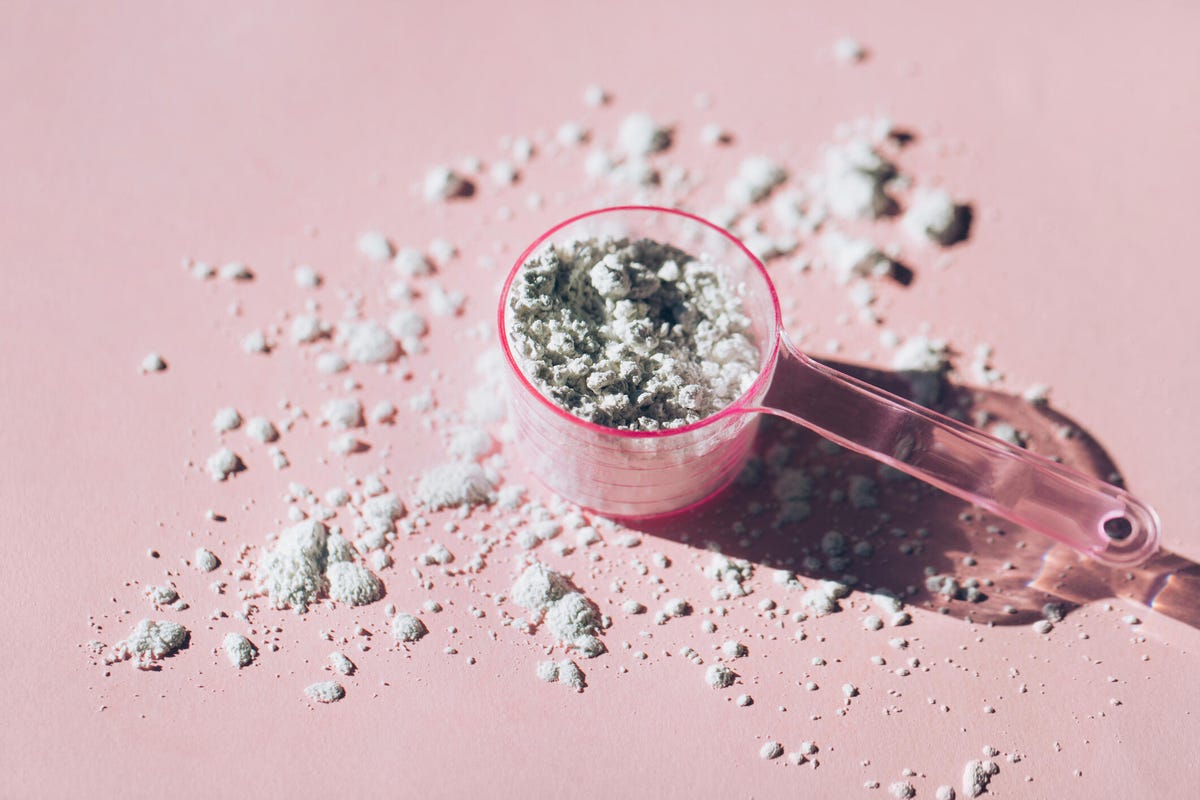 Why You Can Trust CNET
Why You Can Trust CNET
Our wellness advice is expert-vetted. Our top picks are based on our editors’ independent research, analysis, and hands-on testing. If you buy through our links, we may get a commission. Reviews ethics statement
Skincare is an integral part of keeping your face and body absolutely glowing. But even if you don't follow a 12-step routine, it's still important to dote on your skin to keep it healthy. You might be focused on ingredients like retinol or hyaluronic acid to keep things looking smooth and tight, but don't overlook collagen as a way to help rejuvenate your skin and nails.
Luckily for your wallet, you can get the collagen you need from your diet rather than popping a pill. Below, we'll explain what collagen is and the role it plays in your body so you can make the best nutrition decisions for your needs.
What is collagen and what does it do?
From talking fridges to iPhones, our experts are here to help make the world a little less complicated.
Collagen is the most abundant protein in the body, and therefore important in maintaining your body's functions. Registered dietitian and nutritionist Tony Castillo explains that the best way to think about collagen is "as a glue to hold things together." It's the major building block of tendons, ligaments, bones, muscles and skin. It also helps your body rebuild itself after injuries, especially at sites like tendons, ligaments and muscles. Take a moment right now to thank collagen for literally keeping your body together.
Your body creates its own collagen by combining amino acids. The process also uses vitamin C, zinc and copper, so you can promote natural collagen production by eating a well-balanced diet (more on that later).
Read more: 10 Daily Habits to Improve Your Eye Health
From talking fridges to iPhones, our experts are here to help make the world a little less complicated.
Do I have enough collagen?
As we get older, our bodies start to naturally produce less collagen. While wrinkles and aches are a part of the aging process, you may be wondering if low collagen is to blame for your ailments.
Castillo says that the following are signs that you may be low on the vital protein:
- Less flexible tendons and ligaments
- Wrinkles on skin
- Weak muscles
- Worn-out cartilage or joint pain
- Gastrointestinal issues caused by thinning of the lining of the digestive tract
If any physical symptoms significantly interfere with your quality of life, check in with your doctor. If you'd just like smoother skin and a little more pep in your step, it could be worth looking into how you can increase your collagen levels.
Do I really need collagen supplements and skin treatments?

Although you can certainly try to produce more collagen naturally (more on that later), at this point you're probably wondering if those trendy collagen supplements and skin treatments actually work. I have an unsatisfying answer to the burning question: They kind of do.
First, let's start with supplements. Castillo recommends that active people take collagen supplements an hour before working out, and there's certainly scientific research that supports this suggestion.
One comprehensive literature review found that collagen supplements can help with wound healing and skin aging, as well as increasing skin elasticity and hydration. These results are just preliminary; a lot more research is needed to confirm their effectiveness. Be careful when searching online; many studies are performed by companies that manufacture collagen supplements, so you can't put too much stock on what they say.
On the other hand, Castillo doesn't see any compelling reason to invest in skin treatments designed to increase collagen. These treatments often have a hefty price tag, and most of the supporting research is inconclusive at best.
If you have the resources to spare, certain treatments might be worth a shot. Some studies have shown that microneedling (which is said to increase collagen) can treat facial scarring and stretch marks, while ultrasound therapy seems to be fairly effective for tightening and lifting facial muscles. This research is far from definitive, so consider trying collagen supplements first before you move on to advanced procedures.
Read more: Do You Really Need to Take a Vitamin? 5 Things to Know Before You Buy
How can I produce more collagen naturally?

A balanced diet will help promote natural collagen production.
Claudia Totir/Moment/Getty ImagesIf the world of supplements and freaky skin treatments doesn't appeal to you, you can take a more natural approach to increasing your collagen.
The most effective way is through a well-balanced diet. When your body produces collagen, it uses amino acids, vitamin C, zinc and copper. To get the necessary amino acids (Castillo specifically names proline and glycine) you can eat eggs, bone broth, beans and meat. For vitamin C, go for citrus fruits, berries and bell peppers. Eat meat, shellfish, nuts, whole grains and beans for zinc and copper.
If you had to choose just one food to increase your levels of collagen, it would have to be bone broth. When you simmer beef, chicken or fish bones in water, the collagen and other minerals seep into the water, delivering a delicious and nutrient-dense liquid. Plan for this type of preparation: Making your own bone broth can take a day or two.
More for your nutrition
- Best Zinc Supplements to Boost Your Immune System
- 6 Best Hair Growth Vitamins
- 5 Best Multivitamins for Men
- 6 Best Vitamins for Hair, Skin and Nails
- 8 Best Vitamin D Supplements to Take This Winter
- Best 5 Vitamins for Energy
The information contained in this article is for educational and informational purposes only and is not intended as health or medical advice. Always consult a physician or other qualified health provider regarding any questions you may have about a medical condition or health objectives.
From talking fridges to iPhones, our experts are here to help make the world a little less complicated.